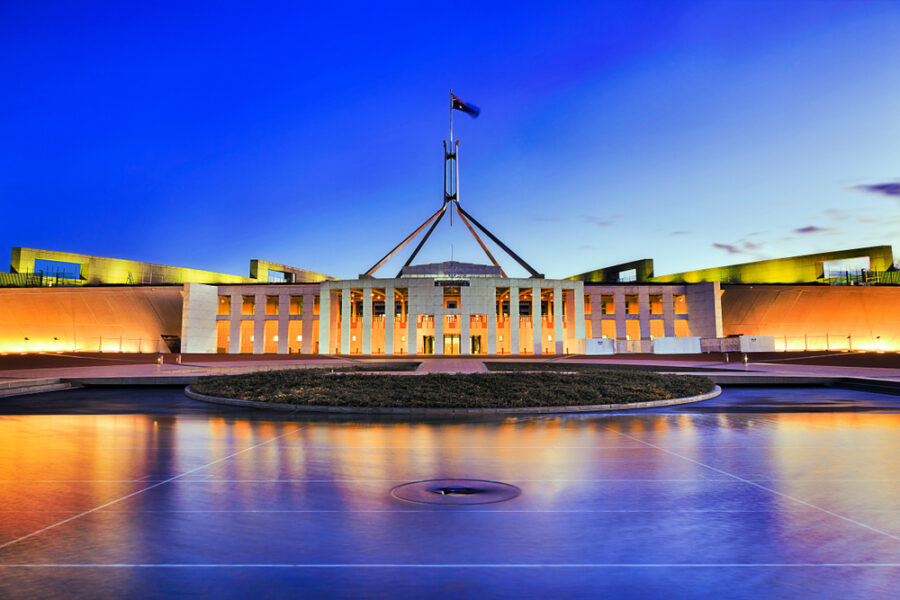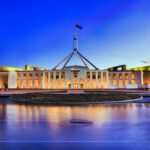Australian government urged to follow through with gambling ad ban

Crossbench politicians and gambling harm campaigners are urging the Australian government not to retreat from a proposed ban on gambling advertising, according to The Guardian.
The news comes amid media reports suggesting that the government may not impose significant restrictions on television and online advertisements.
One report published by the Australian Financial Review alleged that the Labor government, under Anthony Albanese, may be reconsidering a full online ad ban, partly due to the new under-16s social media ban that the government hopes will reduce children’s exposure to digital advertising.
Other sources have told The Guardian that the Communications Minister, Anika Wells, has not yet finalized the government’s response to the ban.
Nearly two years after the death of Labor MP Peta Murphy, whose parliamentary inquiry recommended a phased, three-year path to a total ban, advocates fear the proposal may be watered down.
Some within the government still support significant restrictions, but others expect the final policy may fall short of Murphy’s recommendations.
The Green Party has said it will use parliament’s return next week to push for a Senate inquiry into gambling advertising, and Tim Costello of the Alliance for Gambling Reform has pointed out that children could still see ads on television and at sporting events.
Independent MPs Kate Chaney and David Pocock have said that anything less than a full ban would not be sufficient to limit harm.
Charlotte Capewell brings her passion for storytelling and expertise in writing, researching, and the gambling industry to every article she writes. Her specialties include the US gambling industry, regulator legislation, igaming, and more.
Verticals:
Sectors:
Topics:
Dig Deeper
The Backstory
Why the fight over gambling ads is flaring again
Australia’s slow march toward curbing gambling advertising has reached a pivotal moment, with pressure mounting from public health advocates, athletes and crossbench MPs to lock in tougher rules ahead of the next federal election cycle. The political ground has shifted since a bipartisan inquiry called for a phased total ban, but the core tension remains: how to reduce youth exposure and harm without blowing a hole in media and sports funding or pushing bettors to offshore sites. As Canberra weighs its next steps, new scrutiny of political ties to sport and signs of industry resistance have sharpened questions about whether the government will deliver the sweeping changes campaigners expected.
From Murphy’s roadmap to policymaking limbo
The benchmark for reform is the 2023 parliamentary report “You Win Some, You Lose More,” led by the late Labor MP Peta Murphy. Its 31 recommendations envisioned a three-year transition to a full ban on gambling ads across broadcast and digital platforms. Two years on, critics say the follow-through has stalled. After early momentum, the government removed the issue from the 2024 legislative agenda, leaving the field to continued advertising and incremental measures.
Advocates have voiced frustration at the pace and scope of action. In a broad critique of inaction, reform groups and medical leaders warned that delay is exposing children to normalized wagering, particularly around football broadcasts and digital feeds. They argue the status quo is untenable amid rising evidence of harm and underage exposure. That public criticism has been sustained in recent months, including a pointed callout that the country’s major codes, bookmakers and broadcasters have resisted change. For a snapshot of this pressure campaign, see the analysis of stalled implementation and its risks in a report on criticism of the reform delay.
High-profile voices in sport have added to the drumbeat. Australian cricketer Usman Khawaja urged an immediate break between wagering and sport, arguing the saturation of odds around live matches is “scary” for young fans. His remarks came alongside meetings with crossbench MPs and public health experts in Canberra, underscoring a broadening coalition for tougher restrictions. His intervention and the political conversations around it are detailed in coverage of Khawaja’s criticism of the delay.
Costs, loopholes and a wary prime minister
Prime Minister Anthony Albanese has signaled caution about an outright ban, citing enforcement challenges and the risk of pushing gamblers to illegal offshore platforms. He has also pointed to financial dependencies across sports and media that might be disrupted by a blanket prohibition. Those lines of concern, including the prospect of leakage to unregulated sites and lost tax revenue, are laid out in his ABC News interview on the difficulty of enforcing a ban.
At the same time, watchdogs argue that industry behavior is outpacing regulators. Sportsbet faced criticism for promoting same-game multis on the AFL website even after pulling similar ads from live broadcasts, highlighting how sponsorships and digital placements can slip through gaps in current rules. That episode, also described in the same report, has become a reference point for advocates pushing for uniform standards across broadcast, streaming and league-owned channels.
Politics, access and the optics of influence
The political class has not escaped scrutiny. Gift disclosures show federal politicians accepted hundreds of sports tickets while Parliament considered restrictions on wagering ads, raising questions about soft-power lobbying around a potential ban. Prime Minister Albanese’s office has previously been contacted by industry representatives arguing for the visibility of legal products, and the sector maintains that onshore advertising supports responsible play and channeling to regulated operators. The ticket tally and the broader influence campaign are outlined in a review of declared gifts to politicians amid reform talks.
For reformers, the optics matter because they intersect with policy trade-offs. Media networks and codes rely on wagering partners for sponsorships and ad spend, and any rapid pullback could hit balance sheets. That argument has featured prominently in behind-the-scenes negotiations, even as public health advocates insist that phased withdrawal and replacement funding can cushion the blow. The unresolved question: whether the government will choose incremental restrictions around time-of-day, sport and online placement, or stick to Murphy’s path toward a complete ban after staged milestones.
Harm, youth exposure and the public health frame
The reform push is fueled by a public health case that has grown harder to ignore. Researchers and service providers have warned about links between gambling and a range of harms, including financial stress and family violence. Those concerns were echoed in a review co-authored by the Family, Domestic and Sexual Violence Commissioner, which the prime minister cited while still arguing a total ad ban would be difficult to police. The government has introduced measures such as a credit card ban for online wagering and the BetStop self-exclusion register, but critics say these steps fall short of tackling pervasive marketing across sports and social media.
The policy debate is not occurring in a vacuum. Extensive data on participation and harm, including socioeconomic impacts and at-risk cohorts, has been compiled by national institutions such as the Australian Institute of Health and Welfare. For broader context on prevalence and harms, see the AIHW’s overview at aihw.gov.au. The original parliamentary inquiry also cataloged the scale of exposure and recommended a staged approach to reduce it; its findings and recommendations are published by the House of Representatives committee at aph.gov.au.
A regional lens: Manila’s tougher tone on online ads
Australia is not alone in reassessing the role of gambling marketing. In the Philippines, a former anti-corruption commissioner urged the government to expand its crackdown on illegal operators by banning promotional ads, calling online betting a “silent epidemic” that targets vulnerable users through 24/7 digital channels. He also pressed for tighter oversight of e-wallets and online banks to stem debt and money laundering tied to gambling transactions. The push follows lawmakers’ passage of the Anti-POGO Act of 2025 to strengthen the prohibition on foreign operators. That evolving posture is captured in reporting on Manila’s call to ban online gambling advertisements, offering a contrast to Australia’s more cautious, harm-minimization approach.
What to watch as Parliament returns
The next moves hinge on whether the government codifies a timeline and scope that mirrors the Murphy blueprint or opts for narrower curbs designed around practical enforceability. Advocates want a comprehensive ad phaseout across all platforms, strict separation from sport and tougher penalties for breaches. Industry is lobbying for targeted limits that preserve revenue flows and steer users to regulated markets.
In the interim, the status quo continues: ubiquitous ads, sponsorships embedded in sporting culture and a regulatory patchwork that struggles to keep pace with digital marketing. The stakes are clear. A decisive framework could reset norms for a generation of fans and bettors; a diluted package could entrench the current equilibrium and extend the controversy well past the next election.







